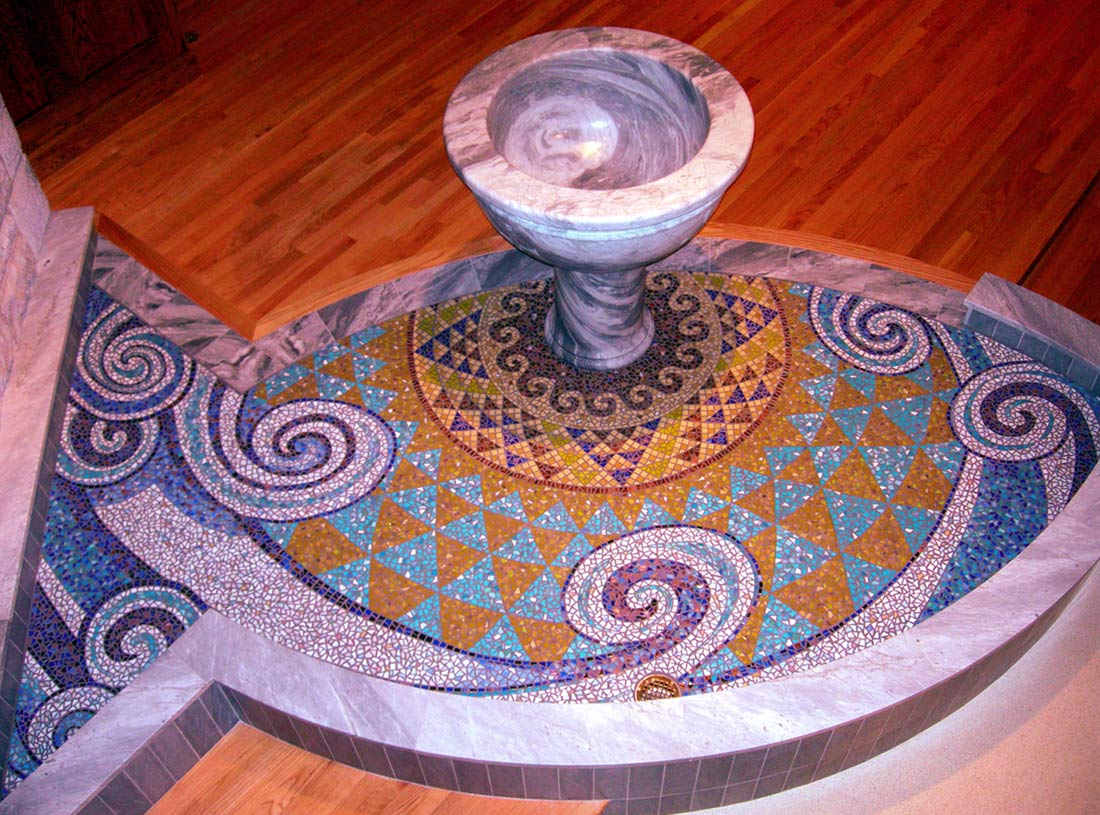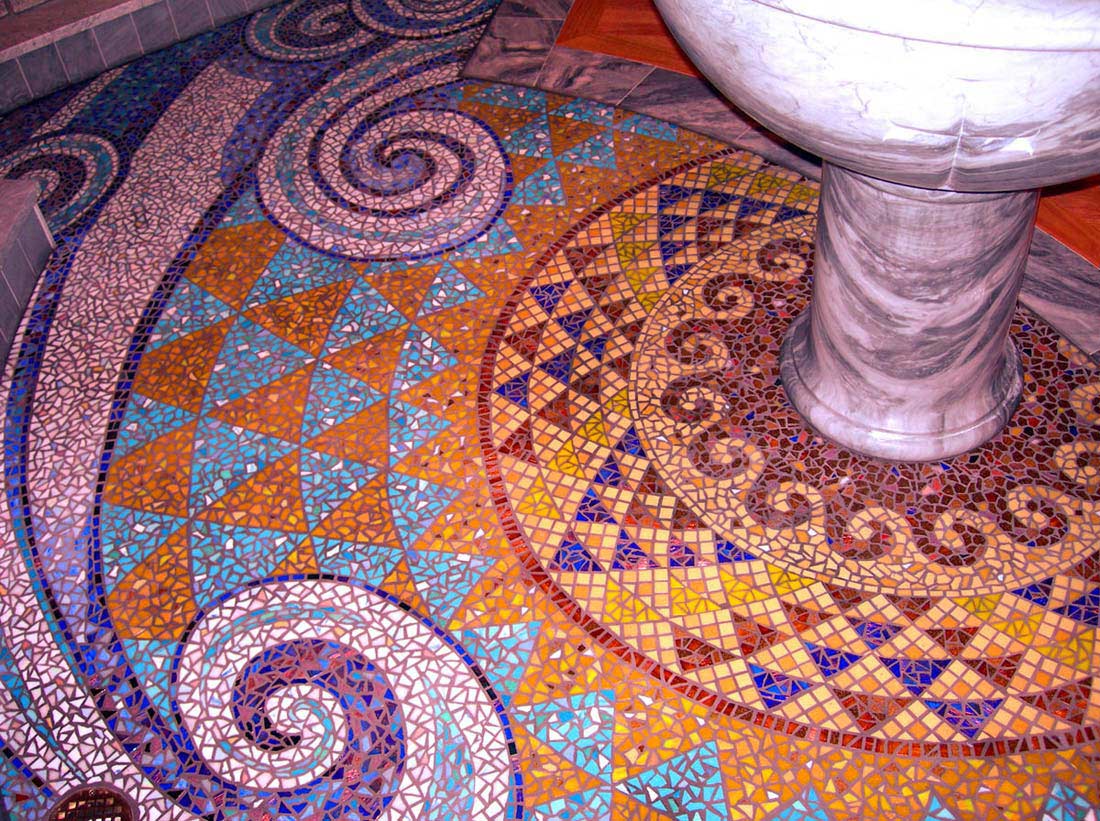‘Living Water’ Glass Tile Church Mosaic, 12′ x 6′, 2007
Altar of St. Agatha’s Church, Woonsocket, Rhode Island
by Charles C. Clear III and Bonnie Lee Turner
This awesome mosaic was commissioned by O’Hearne Associates architectural firm for the altar of St. Agatha’s Church in Woonsocket, Rhode Island.
Titled ‘Living Water’, the 12′ x 6′ mosaic surrounds St. Agatha’s baptismal font, and is bordered by gray marble tile in an ichthus shape. The “Living Water’ mosaic was created in my studio and installed at St. Agatha’s Church a few days before Easter. Bonnie Turner and I are honored to have had the opportunity to use our God-given gifts to create this wonderful work of art, which will last the life of the building and be the platform on which so many souls will receive the Holy Spirit, have their sins forgiven, and be reborn to a new life in Christ.
As with all of our mosaics, we carefully designed the ‘Living Water’ mosaic at St. Agatha’s to be rich with multi-layered symbolism. For example, the mosaic has a Byzantine inspired center that segues outward into a more contemporary design. This juxtaposition of the ancient and the modern represents both the Old and New Testaments, as well as the mortal and the eternal.
Additionally, the very center of the medallion is predominantly a brownish earth-toned color. This represents that man was formed from the dust of the ground. Within this area we also included many tiny fragments featuring a spectrum of colors, each symbolizing the imperishable grace and gifts of God that are inherent within mortal man. For example, the drops of red represents the blood of Christ. The specks of white is purity. The blue symbolizes that the Living Water is beginning to permeate through the flesh.
The Medallion in the center also contains a sun or fire shape surrounding the base of the font. This represents the Holy Spirit radiating outward and connecting the mortal with the eternal. Surrounding this shape, there are a series of small triangles pointing outward, away from the font, to symbolize our spiritual growth as we seek our Creator. Additionally, we also grouped some of the triangles together into three distinct ‘arrow’ shapes. These obviously represent the Holy Trinity, which is a recurring motif throughout the mosaic.
Outside of the medallion, there are a series of large gold and blue triangles. Aesthetically, the blue triangles represent the waves of Living Water, while the gold triangles have a dual meaning: At face value, these triangles serve to mimic the scales of a fish, thereby complementing the ichthus or fish shape that surrounds the mosaic – but the true meaning is as a representation of the Holy Spirit. When you look at the gold triangles as a group, they form a sun shape that surrounds the medallion and radiates outward. The gold is the color of Holy Spirit fire, and each triangle is like a flicker of the flame. When intermixed with the blue triangles of Living Water, you have a fire and water motif, with both representing the Holy Spirit.
Finally, the mosaic also contains eight waves, or swirls, of living water, symbolically rushing in to baptize with the power of the Holy Spirit. The number eight has great significance both in the Bible and to the sacred rite of baptism. For example, in the Bible the Jewish rite of brit milah, or circumcision, is held on the baby boy’s eighth day of life. Hanukkah is an eight day holiday. Noah was the eighth person. There were eight survivors of the great flood. While the number 7 is the number of completion, the number 8 is the sign of renewal and rebirth.
Charles C. Clear III
cc@oceanstateart.com

